Filter by
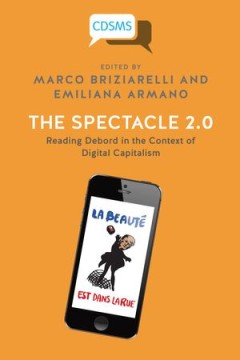
The Spectacle 2.0
Spectacle 2.0 recasts Debord's theory of spectacle within the frame of 21st century digital capitalism. It offers a reassessment of Debord’s original notion of Spectacle from the late 1960s, of its posterior revisitation in the 1990s, and it presents a reinterpretation of the concept within the scenario of contemporary informational capitalism and more specifically of digital and media labour…
- Edition
- -
- ISBN/ISSN
- 9781911534440
- Collation
- -
- Series Title
- -
- Call Number
- -
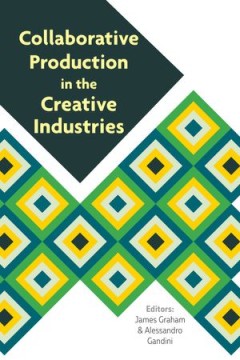
Collaborative Production in the Creative Industries
In recent years research into creative labour and cultural work has usually addressed the politics of production in these fields, but the sociotechnical and aesthetic dimensions of collaborative creative work have been somewhat overlooked. This book aims to address this gap. Through case studies that range from TV showrunning to independent publishing, from the film industry to social media pla…
- Edition
- -
- ISBN/ISSN
- 9781911534280
- Collation
- -
- Series Title
- -
- Call Number
- -
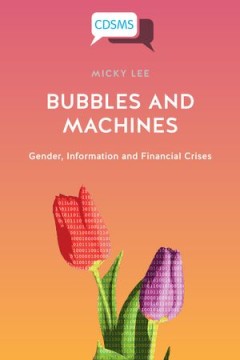
Bubbles and Machines
Are financial crises embedded in IT? Can gender studies offer insights into financial reporting? Feminist theories and Science and Technology Studies (STS) can enrich a critique of financial crises in capitalism as the author argues their critical, political economic approaches to communication can help in understanding because they historicize technology and economy and how these are materiall…
- Edition
- -
- ISBN/ISSN
- 9781912656011
- Collation
- -
- Series Title
- -
- Call Number
- -

Appearance, Discrimination and the Media
The portrayal of disfigurement in the UK media must change. This policy brief is based on recent research that found a general negative and sensationalised attitude towards disfigurement in the media. Disfigurement is a condition that can affect anyone at any time in life regardless their social or demographic background due to accidents or health conditions or be congenital. In the UK, one in …
- Edition
- -
- ISBN/ISSN
- 9781912656233
- Collation
- -
- Series Title
- -
- Call Number
- -

Literature Matters
This new collection of J. Hillis Miller’s essays centres on the question “why and to what end should we read, teach, and spend our time with literary and/or cultural studies?” At a time when electronic media seem to dominate the market completely, and jobs follow the money flows into electronic and technical fields, literary and cultural studies might appear as a decorative addenda but no…
- Edition
- -
- ISBN/ISSN
- 9781785420344
- Collation
- -
- Series Title
- -
- Call Number
- -

Studies in Historical Documents from Nepal and India
- Edition
- -
- ISBN/ISSN
- 9783946054719
- Collation
- -
- Series Title
- -
- Call Number
- -
- Edition
- -
- ISBN/ISSN
- 9783946054719
- Collation
- -
- Series Title
- -
- Call Number
- -
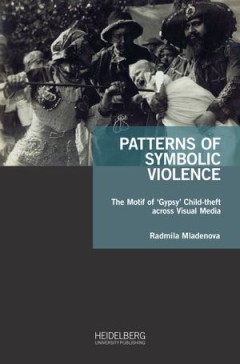
Patterns of Symbolic Violence
Drawing on a number of paradigmatic works of art, the book explores the motif of ‘gypsy’ child-theft and its visualisations. The analytical focus is on the colour coding of bodies in texts and images and their racialised/anti-gypsy uses. Offering a comprehensive survey of the motif’s adaptations to different visual media, the author elaborates on its multiple layers of meaning and functio…
- Edition
- -
- ISBN/ISSN
- 9783947732470
- Collation
- -
- Series Title
- -
- Call Number
- -
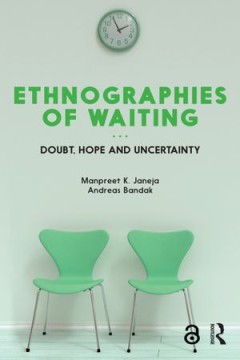
Ethnographies of Waiting Doubt, Hope and Uncertainty
We all wait – in traffic jams, passport offices, school meal queues, for better weather, an end to fighting, peace. Time spent waiting produces hope, boredom, anxiety, doubt, or uncertainty. Ethnographies of Waiting explores the social phenomenon of waiting and its centrality in human society. Using waiting as a central analytical category, the book investigates how waiting is negotiated in m…
- Edition
- -
- ISBN/ISSN
- 9781474280280
- Collation
- -
- Series Title
- -
- Call Number
- -

Work and Livelihoods History, Ethnography and Models in Times of Crisis
Winner of the Society for the Anthropology of Work book prize 2017 This volume presents a global range of ethnographic case studies to explore the ways in which - in the context of the restructuring of industrial work, the ongoing financial crisis, and the surge in unemployment and precarious employment - local and global actors engage with complex social processes and devise ideological, po…
- Edition
- -
- ISBN/ISSN
- 9781317602446
- Collation
- -
- Series Title
- -
- Call Number
- -
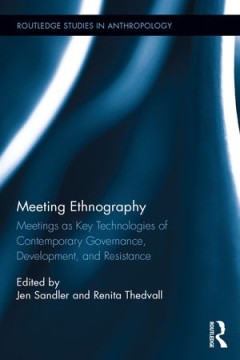
Meeting Ethnography Meetings as Key Technologies of Contemporary Governance,…
This volume asks and addresses elusive ontological, epistemological, and methodological questions about meetings. What are meetings? What sort of knowledge, identities, and power relationships are produced, performed, communicated, and legitimized through meetings? How do—and how might—ethnographers study meetings as objects, and how might they best conduct research in meetings as particula…
- Edition
- -
- ISBN/ISSN
- 1317195108
- Collation
- -
- Series Title
- -
- Call Number
- -
 Computer Science, Information & General Works
Computer Science, Information & General Works  Philosophy & Psychology
Philosophy & Psychology  Religion
Religion  Social Sciences
Social Sciences  Language
Language  Pure Science
Pure Science  Applied Sciences
Applied Sciences  Art & Recreation
Art & Recreation  Literature
Literature  History & Geography
History & Geography